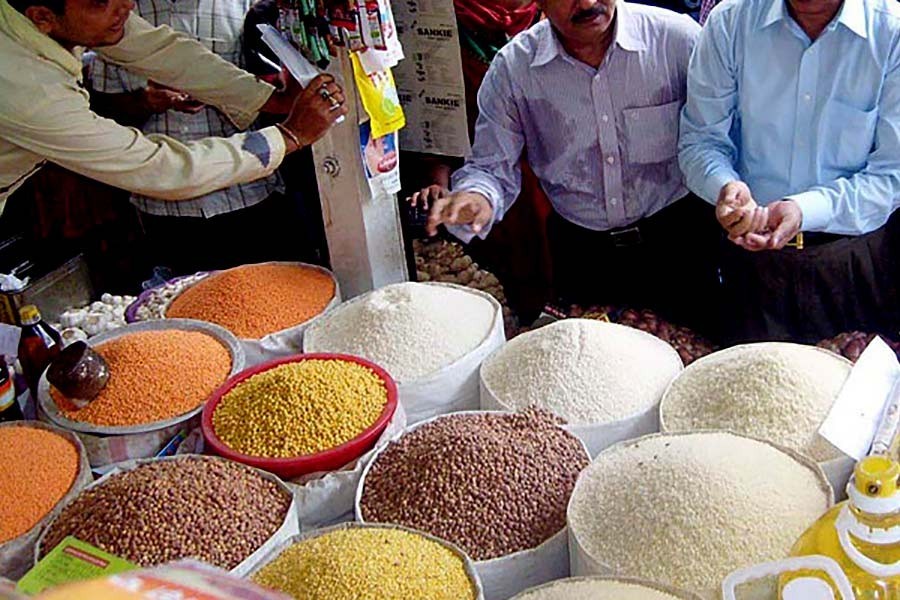
Tanzila Sultana and Md Moniruzzaman
Published :
Updated :

It is common that during the festive seasons, prices of daily commodities, from onion to beef, cosmetics and accessories, clothing items etc rise exceptionally taking these out of the reach of lower-middle income groups of people. We observe this trend the most in the month of Ramadan. Even the government struggles to control the sky-rocketing prices. We often generalise that this is due to maleficent intentions of merchants and businessmen who try to make more profit during this month. Although this explanation seems fit to the general eye, there exist other explanations may sound more logical.
The holy month of Ramadan is the month of fasting and encourages charitable deeds. This one month of fasting lead to the auspicious occasion of Eid-ul Fitr for Muslims. It is true that the amount of total consumption and production increase on this month. This adds to the gross domestic product (GDP) of the country and ensures employment of unused resources. Also, money circulation increases during this time raising the transaction demand of money at the existing interest rate. This in turn affects the amount of money available for investment. Under these circumstances, investors and producers borrow money at high cost which influences the production cost and thus results in high price of products.
Also, majority of inputs used in firm production come from agricultural sector. Although the demand for such agricultural inputs rise ahead of Ramadan, it is not possible to increase the supply of agricultural products to meet the extra demand in such short time. This excess demand inevitably affects prices causing them to rise.
Another reason behind the increased prices of products is the increased income of the population, which broadens their purchasing power. People working at every stage, whether it is an office clerk, apparels sector worker, or professor of a university, get a bonus or some form of extra income to enjoy the upcoming festival of Eid. They buy new clothes and ensure good food on Eid day. This is the scenario in the formal sector.
In informal sector, every service-provider, including house maid, rickshaw pullers, cleaners and others, get some bonus as charity, fitra or zakat. These add up to their income. Even the beggars on the streets get their share of extra income from the passersby. This extra income pushes the consumption demand and thus spending. While the production in both agricultural and industrial sector increases, the rate of increase in income is higher than the total rate of production. This creates the seasonal inflation in the market by creating excess demand.
Furthermore, during Ramadan, black market economic activity increases by taking advantage of this seasonal inflation. Illegal stocking and hoarding of food products, food adulteration, forged and counterfeit products, ticket sale in black market and crimes like mugging and robbery, tend to increase. Especially food adulteration and counterfeit products are major problems causing health problems for consumers. Stocking and hoarding of products worsen the existing inflation. All this activity leeches money out of the consumers.
Because of the rise of personal income and increase in money circulation, it is inevitable that moderate level of inflation would be felt during this festive season. But the negative consequences that come with it should be checked. Recently the government has taken some steps to investigate and expose food adulteration and counterfeit products. The government is still working against hoarding behaviour of merchants and businessmen. Prior to purchasing products, the general consumer should check products to ensure their authenticity.
Tanzila Sultana is a Research Associate at the Bangladesh Institute of Governance and Management (BIGM).
Tanzila.sultana@bigm.edu.bd
Dr. Md. Moniruzzaman is an Associate Professor at the Bangladesh Institute of Governance and
Management (BIGM).
monir65@gmail.com


 For all latest news, follow The Financial Express Google News channel.
For all latest news, follow The Financial Express Google News channel.